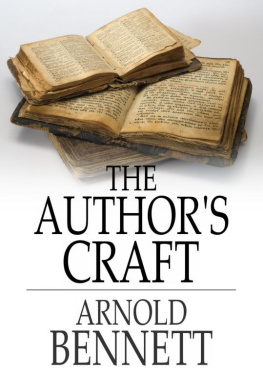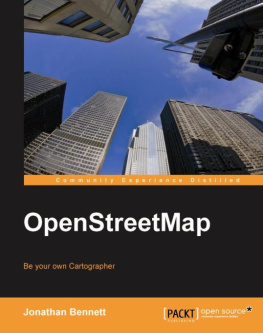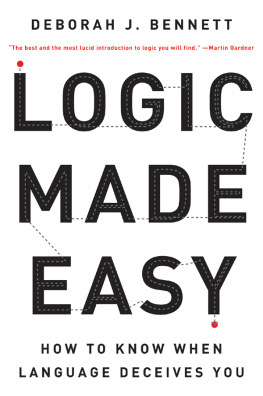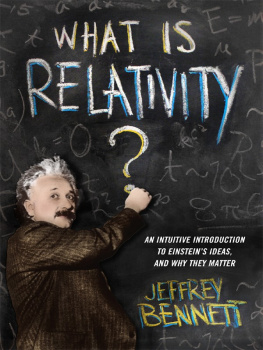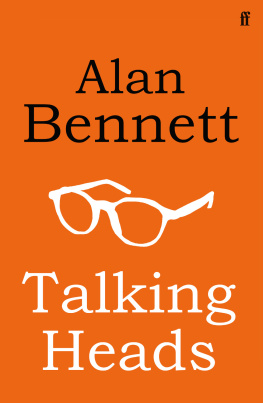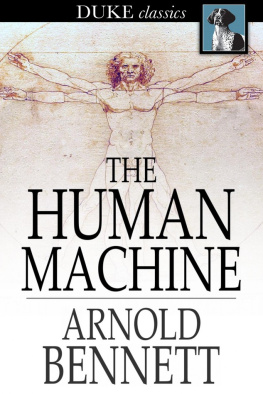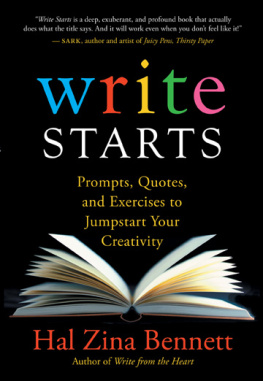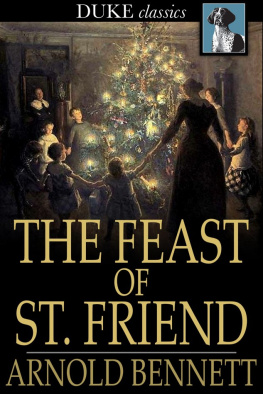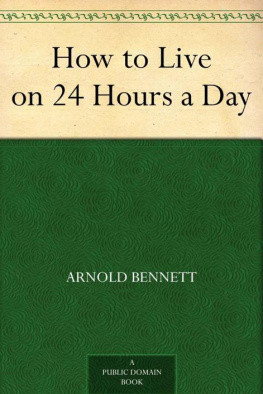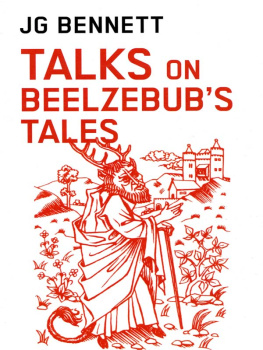Bennett - The Authors Craft
Here you can read online Bennett - The Authors Craft full text of the book (entire story) in english for free. Download pdf and epub, get meaning, cover and reviews about this ebook. publisher: The Floating Press, genre: Art. Description of the work, (preface) as well as reviews are available. Best literature library LitArk.com created for fans of good reading and offers a wide selection of genres:
Romance novel
Science fiction
Adventure
Detective
Science
History
Home and family
Prose
Art
Politics
Computer
Non-fiction
Religion
Business
Children
Humor
Choose a favorite category and find really read worthwhile books. Enjoy immersion in the world of imagination, feel the emotions of the characters or learn something new for yourself, make an fascinating discovery.
The Authors Craft: summary, description and annotation
We offer to read an annotation, description, summary or preface (depends on what the author of the book "The Authors Craft" wrote himself). If you haven't found the necessary information about the book — write in the comments, we will try to find it.
Bennett: author's other books
Who wrote The Authors Craft? Find out the surname, the name of the author of the book and a list of all author's works by series.
The Authors Craft — read online for free the complete book (whole text) full work
Below is the text of the book, divided by pages. System saving the place of the last page read, allows you to conveniently read the book "The Authors Craft" online for free, without having to search again every time where you left off. Put a bookmark, and you can go to the page where you finished reading at any time.
Font size:
Interval:
Bookmark:
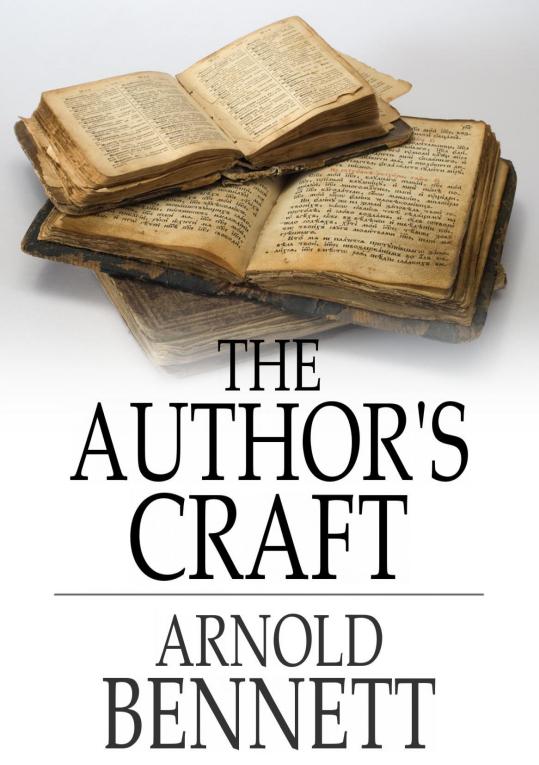

The Author's Craft
From a 1914 edition.
ISBN 978-1-775414-56-8
2009 THE FLOATING PRESS.
While every effort has been used to ensure the accuracy and reliability of the information contained in The Floating Press edition of this book, The Floating Press does not assume liability or responsibility for any errors or omissions in this book. The Floating Press does not accept responsibility for loss suffered as a result of reliance upon the accuracy or currency of information contained in this book. Do not use while operating a motor vehicle or heavy equipment. Many suitcases look alike.
Visit www.thefloatingpress.com
A young dog, inexperienced, sadly lacking in even primary education,ambles and frisks along the footpath of Fulham Road, near the mysteriousgates of a Marist convent. He is a large puppy, on the way to be a dogof much dignity, but at present he has little to recommend him but thatgawky elegance, and that bounding gratitude for the gift of life, whichdistinguish the normal puppy. He is an ignorant fool. He might haveentered the convent of nuns and had a fine time, but instead he stepsoff the pavement into the road, the road being a vast and interestingcontinent imperfectly explored. His confidence in his nose, in hisagility, and in the goodness of God is touching, absolutely painful towitness. He glances casually at a huge, towering vermilion constructionthat is whizzing towards him on four wheels, preceded by a glint ofbrass and a wisp of steam; and then with disdain he ignores it as lessimportant than a mere speck of odorous matter in the mud. The nextinstant he is lying inert in the mud. His confidence in the goodness ofGod had been misplaced. Since the beginning of time God had ordained hima victim.
An impressive thing happens. The motor-bus reluctantly slackens andstops. Not the differential brake, nor the foot-brake, has arrested themotor-bus, but the invisible brake of public opinion, acting byadministrative transmission. There is not a policeman in sight.Theoretically, the motor-'bus is free to whiz onward in its flight tothe paradise of Shoreditch, but in practice it is paralysed by dread. Aman in brass buttons and a stylish cap leaps down from it, and theblackened demon who sits on its neck also leaps down from it, and theymove gingerly towards the puppy. A little while ago the motor-bus mighthave overturned a human cyclist or so, and proceeded nonchalant on itsway. But now even a puppy requires a post-mortem: such is the force ofpublic opinion aroused. Two policemen appear in the distance.
"A street accident" is now in being, and a crowd gathers with calm joyand stares, passive and determined. The puppy offers no sign whatever;just lies in the road. Then a boy, destined probably to a great futureby reason of his singular faculty of initiative, goes to the puppy andcarries him by the scruff of the neck, to the shelter of the gutter.Relinquished by the boy, the lithe puppy falls into an easy horizontalattitude, and seems bent upon repose. The boy lifts the puppy's head toexamine it, and the head drops back wearily. The puppy is dead. No cry,no blood, no disfigurement! Even no perceptible jolt of the wheel as itclimbed over the obstacle of the puppy's body! A wonderfully clean andperfect accident!
The increasing crowd stares with beatific placidity. People emergeimpatiently from the bowels of the throbbing motor-bus and slip downfrom its back, and either join the crowd or vanish. The two policemenand the crew of the motor-bus have now met in parley. The conductor andthe driver have an air at once nervous and resigned; their gestures arequick and vivacious. The policemen, on the other hand, indicate by theirslow and huge movements that eternity is theirs. And they could not bemore sure of the conductor and the driver if they had them manacled andleashed. The conductor and the driver admit the absolute dominion of theelephantine policemen; they admit that before the simple will of thepolicemen inconvenience, lost minutes, shortened leisure, docked wages,count as less than naught. And the policemen are carelessly sublime,well knowing that magistrates, jails, and the very Home Secretary on histhroneyes, and a whole system of conspiracy and perjury andbrutalityare at their beck in case of need. And yet occasionally inthe demeanour of the policemen towards the conductor and the driverthere is a silent message that says: "After all, we, too, are workingmen like you, over-worked and under-paid and bursting with grievances inthe service of the pitiless and dishonest public. We, too, have wivesand children and privations and frightful apprehensions. We, too, haveto struggle desperately. Only the awful magic of these garments and ofthe garter which we wear on our wrists sets an abyss between us andyou." And the conductor writes and one of the policemen writes, and theykeep on writing, while the traffic makes beautiful curves to avoid them.
The still increasing crowd continues to stare in the pure blankness ofpleasure. A close-shaved, well-dressed, middle-aged man, with a copy ofThe Sportsman in his podgy hand, who has descended from the motor-bus,starts stamping his feet. "I was knocked down by a taxi last year," hesays fiercely. "But nobody took no notice of that! Are they going tostop here all the blank morning for a blank tyke?" And for all hisrespectable appearance, his features become debased, and he emits a jetof disgusting profanity and brings most of the Trinity into thethunderous assertion that he has paid his fare. Then a man passeswheeling a muck-cart. And he stops and talks a long time with the otheruniforms, because he, too, wears vestiges of a uniform. And the crowdnever moves nor ceases to stare. Then the new arrival stoops and picksup the unclaimed, masterless puppy, and flings it, all soft andyielding, into the horrid mess of the cart, and passes on. And only thatwhich is immortal and divine of the puppy remains behind, floatingperhaps like an invisible vapour over the scene of the tragedy.
The crowd is tireless, all eyes. The four principals still converse andwrite. Nobody in the crowd comprehends what they are about. At lengththe driver separates himself, but is drawn back, and a new parley iscommenced. But everything ends. The policemen turn on their immenseheels. The driver and conductor race towards the motor-bus. The bellrings, the motor-bus, quite empty, disappears snorting round the cornerinto Walham Green. The crowd is now lessening. But it separates withreluctance, many of its members continuing to stare with intenseabsorption at the place where the puppy lay or the place where thepolicemen stood. An appreciable interval elapses before the "streetaccident" has entirely ceased to exist as a phenomenon.
The members of the crowd follow their noses, and during the course ofthe day remark to acquaintances:
"Saw a dog run over by a motor-bus in the Fulham Road this morning!Killed dead!"
And that is all they do remark. That is all they have witnessed. Theywill not, and could not, give intelligible and interesting particularsof the affair (unless it were as to the breed of the dog or the numberof the bus-service). They have watched a dog run over. They analyseneither their sensations nor the phenomenon. They have witnessed itwhole, as a bad writer uses a
Font size:
Interval:
Bookmark:
Similar books «The Authors Craft»
Look at similar books to The Authors Craft. We have selected literature similar in name and meaning in the hope of providing readers with more options to find new, interesting, not yet read works.
Discussion, reviews of the book The Authors Craft and just readers' own opinions. Leave your comments, write what you think about the work, its meaning or the main characters. Specify what exactly you liked and what you didn't like, and why you think so.

